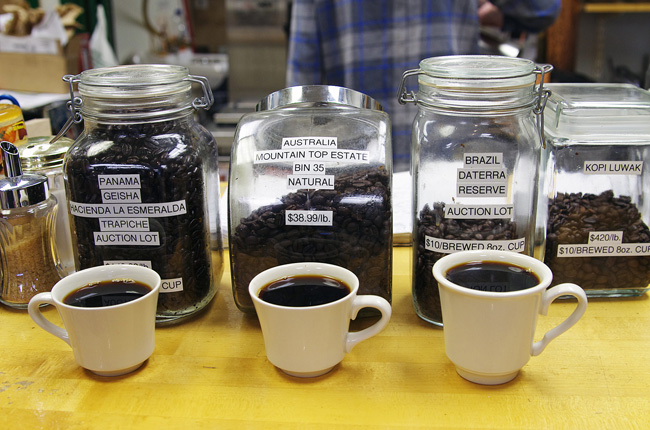
A brief, modern history of coffee: First came Folgers. Then the ubiquitous green sea monster rose from Puget Sound. Now we’re in the “Third Wave Coffee” era.
This “Third Wave” business feels like revisionist history, or at least a bit like a marketing ploy to sell coffee brewed by a natty barista. In fact, fine coffee has been here all along if you know where to look for it. But if you are willing to grant that there is such a thing as the Third Wave, then Jim Cone of Coffee and Tea Limited in Linden Hills, like Neil Young to Pearl Jam, could well be considered the godfather of the movement.
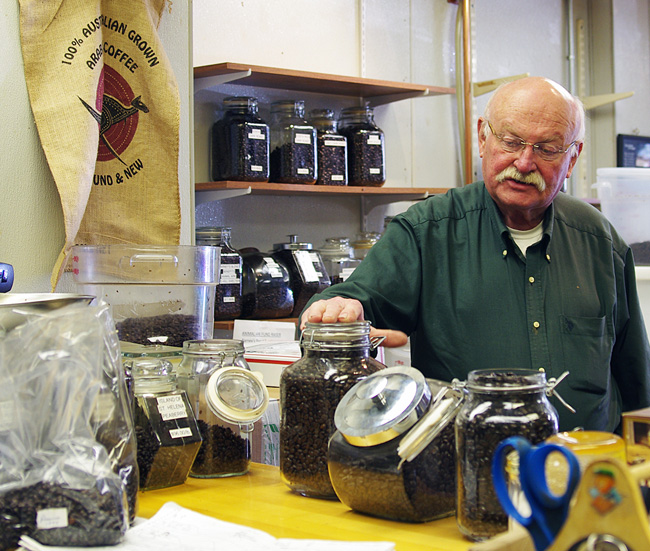
When you walk into Coffee and Tea Limited, the first thing you see is the drum roaster, sitting atop the catbird seat in the sunny front window of the shop. This hundred-year-old machine, with its filigree and leather belts, is the primary tool of Cone’s trade. It’s where you’ll find him carefully roasting the green coffee beans that form an aisle to the counter, which itself displays a grid of roasted coffee beans.
Most of Coffee and Tea Limited’s business is in bulk sale of coffee and tea, though we are here for the coffee. There is a steady stream of customers coming in for their weekly supply, and Jim knows many of them by name. At Coffee and Tea Limited, you can order prepared coffee or try a pour-over cup of anything you see (prices vary depending on the cost of the beans, topping out at $10 for the select items), but there is nary a table at which to sit and no Wi-Fi on which to Tumblr away the hours. This is a working coffee shop after all, not a cafe.
Coffee and Tea Limited offers a staggering array of beans for sale: from modestly priced blends to single-source all-stars like Jamaica Blue Mountain and Kona* to rare auction lot selections from every corner of the globe to the oddity of the coffee world: Kopi Luwak, beans that were excreted by a palm civet, a small cat-like creature that eats the fruit of the coffee tree.
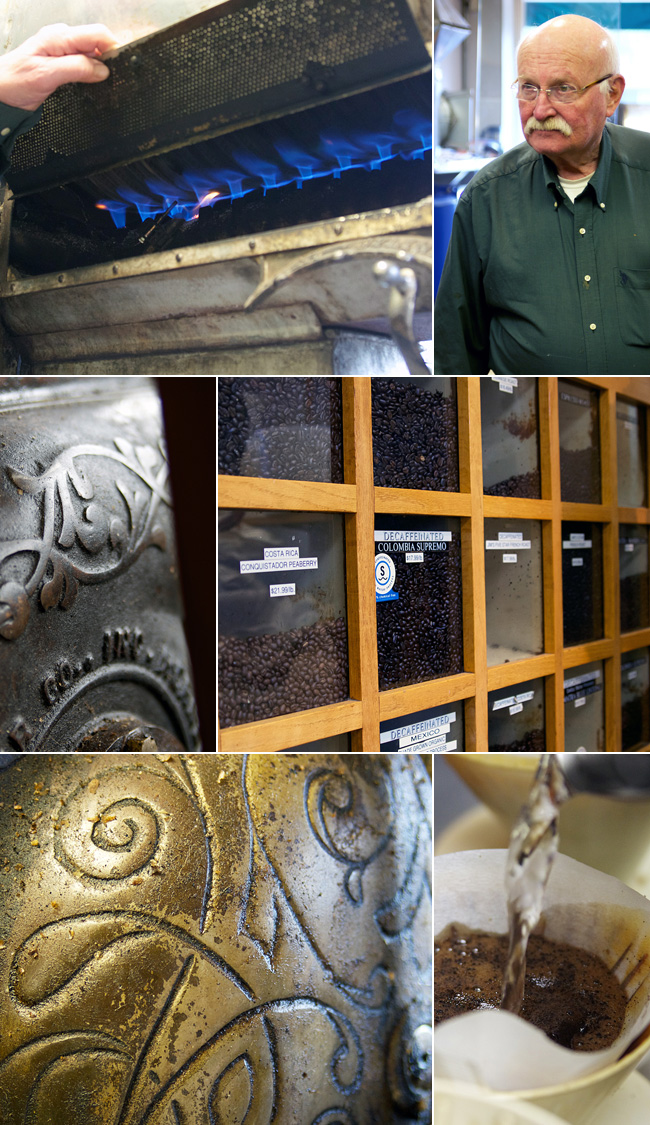
Cone carries an encyclopedic knowledge of his wares. He sources everything himself, either through an importer, directly from a farmer, or at auction. He knows how long to roast each bean to achieve the optimal flavor. Cone does not have a favorite coffee and he knows them all very well.
On this day, Cone has selected four varieties for us to try: Geisha, an auction-lot coffee from Estate Hacienda La Esmeralda in Panama ($144/lb.), Australia Mountain Top Estate, Bin 35 ($39/lb.), Daterra Reserve, an auction-lot coffee from Brazil ($90/lb.), and the notorious Kopi Luwak ($420/lb.), often taxonomically mis-categorized as monkey- or cat-poop coffee.
The barista, Tyler, carefully prepares four pour-over cups and lines them up on the counter in front of their corresponding glass jars. We begin with the Daterra Reserve. Perhaps it’s the primacy effect or our preference for full-flavored coffee, but this was our favorite. It was rich and velvety, with a robust aroma and chocolaty taste.
The second cup we tried was the Australian Mountaintop. This cup had a fruity aroma. It tasted of apple and pear and had a crisp finish. This was a natural-process coffee. Commercially available coffee is usually wet processed: the berries are washed in water until the fruit comes off leaving behind the seed. Natural-process coffee is dried in the sun and raked by hand on patios until the pulp flakes off.
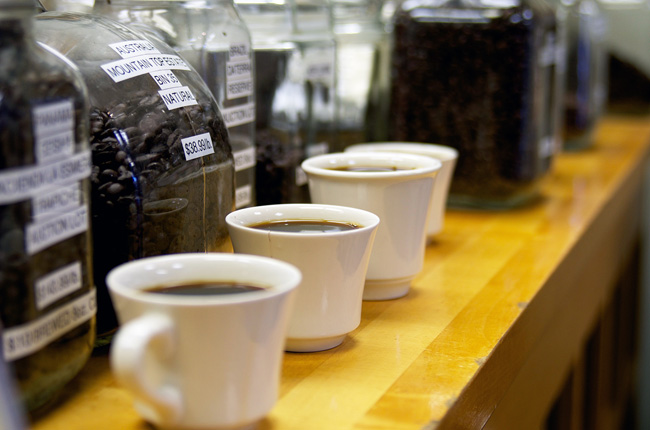
Our third cup was the Geisha, a subspecies of the bourbon (pronounced: boor-bahn) cultivar of the Arabica species. With a hardwood taste, this cup was milder than the previous two. It sat between the robust Daterra and the fruity Australian Mountaintop. One of our tasters liked it best and Cone seemed to hint that this was a mighty impressive bean.
Finally we drank the Kopi Luwak, an experience unlike any dry or wet process coffee. The civet process extracts coffee’s normal acidic mouth feel and imparts a weak, earthy aftertaste (almost an aftersmell) like composting organic matter, something you might spread over your garden. The most expensive coffee in the shop is not best. It is worth tasting for $10 a cup, but it is not a coffee to bring to Sunday brunch with grandma.
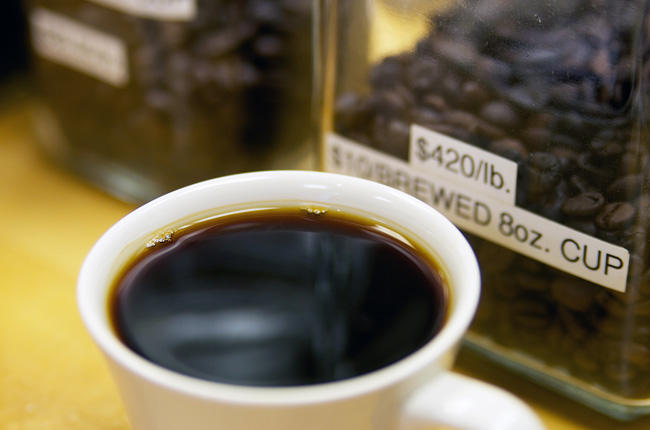
At least three of the coffees we tasted were exquisite but expensive. But many of the beans at Coffee and Tea Limited are priced for everyday drinking. Cone’s roasting skills are honed, and he can help you find a bean to suit your taste. In addition to the Linden Hills location, Coffee and Tea Limited is at the Mall of America, on the first floor of Sears, as it has been since a week before the mall opened. Mail orders are also invited.
Regular visitors know that Cone loves dogs at least as much as he loves coffee. The shop carries two blends to benefit animals: Buddy’s Blend benefits Animal Ark, a no-kill animal shelter in Hastings, and Rhodesian Ridgeback Blend benefits Rhodesian Ridgeback rescue. And all of the tips go to Animal Ark.
A note about pricing: According to Cone, the price of green coffee has risen 30 percent in the last year due to global competition for quality beans. The prices at Coffee and Tea Limited reflect the ever-changing market value of a select agricultural commodity and won’t necessarily be what they were on the day of our visit. In fact, the specific coffee we tasted might not even be available any longer. Except the Kopi Luwak. Civets gotta eat, after all.
* Did you know that coffee could be labeled “Kona” with as little as 10 percent actual Kona beans, as long as the fine print says, “blend”?
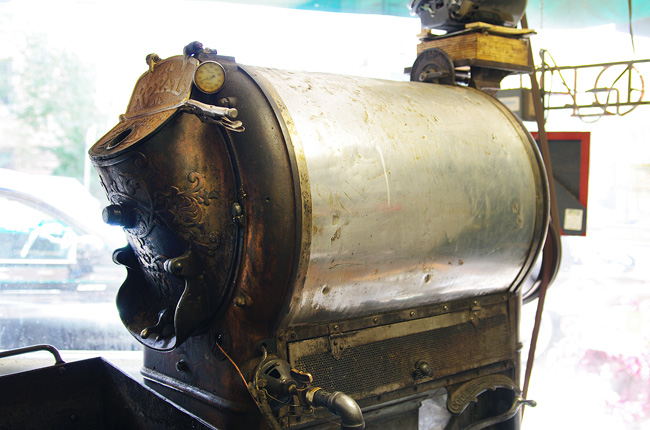
Coffee and Tea Limited
2730 West 43rd St, Minneapolis
612.920.6344
Owner: Jim Cone
Hours
Mon-Fri 9am-8pm
Sat 9am-6pm
Sun Noon-5pm
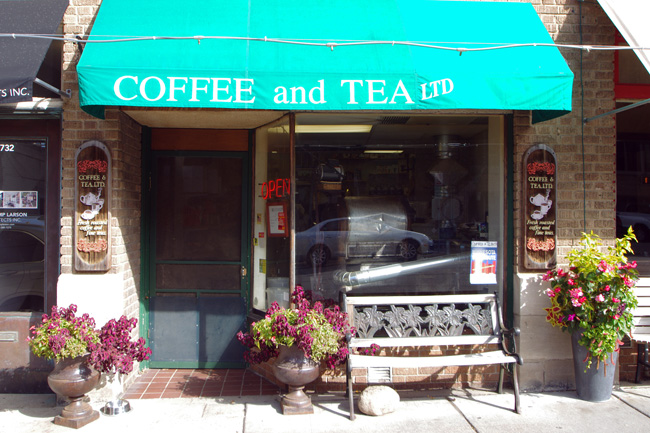

Detail: Ground was broken on the Mall of America in 1989, but I think that’s not the same as coffee grounds. The MOA didn’t open until 1992.